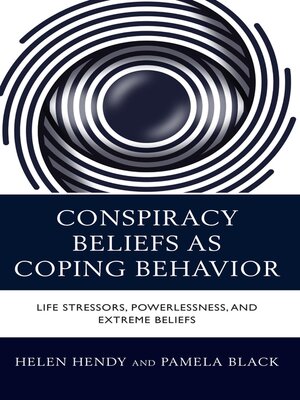Conspiracy Beliefs as Coping Behavior
ebook ∣ Life Stressors, Powerlessness, and Extreme Beliefs
By Helen M. Hendy

Sign up to save your library
With an OverDrive account, you can save your favorite libraries for at-a-glance information about availability. Find out more about OverDrive accounts.
Find this title in Libby, the library reading app by OverDrive.



Search for a digital library with this title
Title found at these libraries:
| Loading... |
This book provides new answers to who and psychologically why individuals sometimes adopt conspiracy beliefs and thoughts of violence. Five conspiracy beliefs are considered: Government Malfeasance, Malevolent World Power, Extra-terrestrial Cover-up, Personal Well-being Threat, and Control of Information. Using a survey of 977 US citizens, the book compares thirteen possible demographic characteristics (who?) to see which ones are most associated with extreme beliefs. The book then evaluates a three-step psychological sequence (why?) in which individuals experiencing intense life stressors (health, money, or loneliness), combined with powerlessness (displayed as PTSD symptoms), have increased risk for extreme beliefs, perhaps because they offer a sense of understanding, strength, and community.






